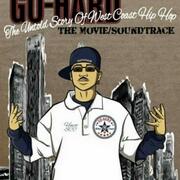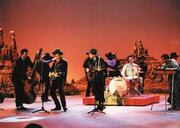New York, NY (Top40 Charts) After beginning a long and storied relationship with the guitar and flute,
Shiloh Hasley began writing music with his best friend in the outer stretches of Kansas City where they would spend hours improvising and constructing the early remnants of his songwriting style. Melting old childhood crayons to create large, cone-sized candles, they would stay up into the night playing music until the entire candle mountain was burned all the way down.
Hasley's grandfather,
Stuart McKay, who was an accomplished big band and progressive jazz musician in the middle part of the 20th century, originally taught him how to play the flute. The development of a strong tone was central to his teaching. He would often explain that to truly develop and know your sound, you must concentrate on one note at a time, and in the beginning, you must learn how hold that note for hours and to hear the nuances of the wind changing through time. These became the foundational steps for Hasley's relationship with music and these elements carried through as he traveled the country in a horseshoe shape down through the desert southwest and up along the west coast, exploring music and homing in on new sounds. Taking inspiration from Paul Simon, The Police, Habib Koite, Tortoise, and The Sea and Cake, Hasley's rhythmically driven guitar style and melodic songwriting approach began to take shape. After establishing a small yet strident following in the San
Diego music scene, he left the city, put all his belongings in storage, and moved into his van to travel the country.
Hasley moved to Portland, OR in 2004. This is where Sea Caves was born and where he met Cameron Jones (former drummer for Pinback and Physics). The two have been collaborating ever since. Around this time, Hasley became closely acquainted with the inner workings of betrayal and introspection, and although he keeps much of these early Portland years under wraps, the early work of Sea Caves reflects these struggles and dark times.
After the release of Slow Wave in 2011, Hasley and Jones began a series of travels north to the volcanic lands of Mount St. Helens. Inspired by the cataclysmic destruction and spectacular regrowth of this area, and how it reflected their own stories of rebuilding, they began writing music on these volcanic trips. The result is Bright Forest, an orchestral indie rock album filled with stories of longing and aspiration with hints of the ever-changing backdrop of the
Cascade forest. Weaving compositions with finger picking guitar, wide harmonies, dueling flutes, melodic bass, and launching keyboard lines, Sea Caves has found a sound that is rooted yet truly all their own.
This past year, Brian
Nelson (bass) and Seiji Nair (keys) have joined Sea Caves and have rounded out and further strengthened the sound of the group.
Nelson has brought an entirely new element to the bass role of the band by hoisting in an intensely melodic approach to the low end of the song-building process. Nair has brought to the mix his old 88-key electric piano and his knack for creating inspiring and atmospheric musical layers. The four-piece has built a live sound that is more than just a solid representation of the intricacies of their album. It is an ode to their surroundings, their musical chemistry, and new beginnings.
Four long years after the release of their debut album, Slow Wave, Sea Caves is now on the brink of releasing Bright Forest, a 12-song celebration and inquiry of introspection, social paradigms, and the
Cascade mountains. An early version of the song "Stoned in the Road Again" was chosen for the 2014 PDX Pop Now compilation and recent shows have highlighted the band's fine-tuned live sound and the growing anticipation of the long-awaited release.
Praise For Sea Caves
"Sea Caves exude a cool, polished pop sound perfect for these hot Portland days. Sea Caves have become a unique beast dressed in beautiful garb, with enough wit and playfulness in their music to keep you coming back for more. Overlapping vocals and carefully orchestrated guitar melodies are the name of the game, as the quartet weaves tunes driven by heavy piano, horns, and bass. This is pure post-rock candy, if you ask me." —Portland Mercury
























